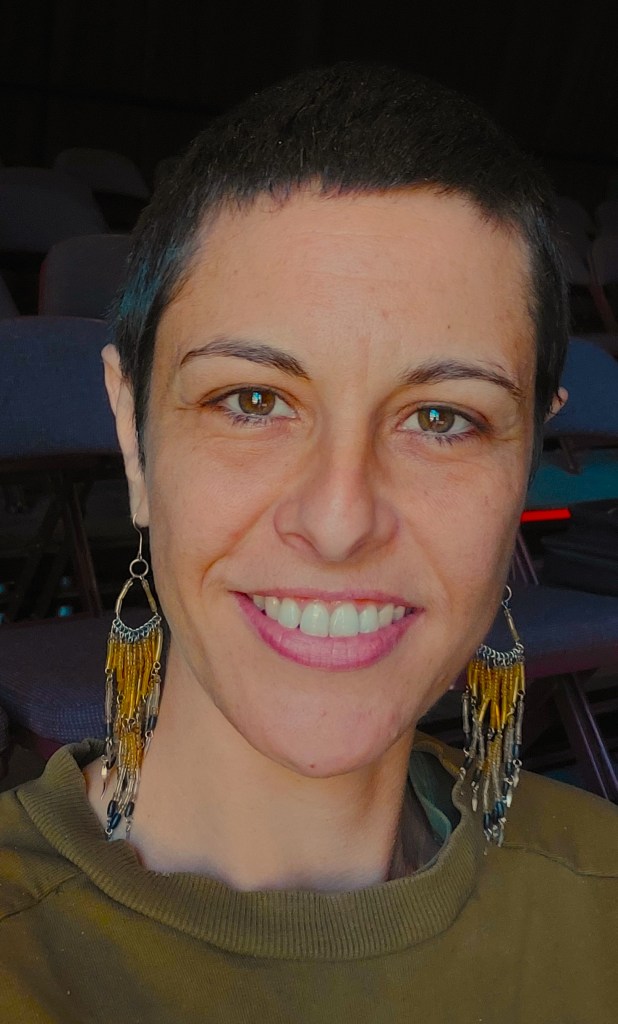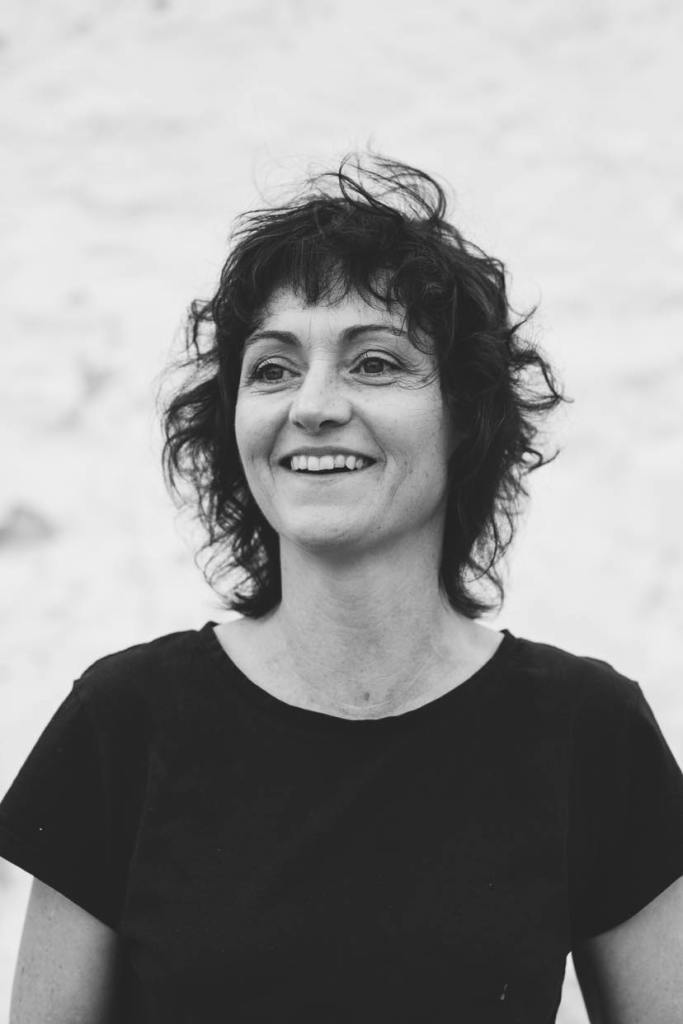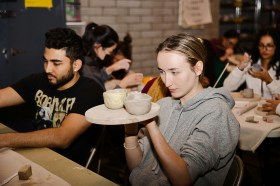The decision to work in theatre is often not enshrined in a moment of clarity, but takes a meandering path. It looks different to everyone but, for some, the path leads them to their goal via a series of unexpected roads. Sometimes there are equal parts desire and reticence, fear and ambivalence.

The following three artists discuss their journeys of working in theatre. Each has walked a different path, but the common ground is that they have confronted circumstances, alternative interests and responsibilities in their lives, but they have been able to forge a path that is unique and has formed them as artists. They have built communities and networks within independent theatre that sustain them – and each work from a place of integrity knowing in deep ways how the ebb and flow of working in the arts can be challenging, but sometimes that is what makes the work meaningful.
Palyku/East Pilbara artist and theatre-maker Helah Milroy grew up in regional Australia in a creative family. In her teens she sidestepped theatre as her father and older siblings were professionally engaged in that space. ‘I felt like that spot had already been taken in the family. I resisted it,’ she says. After serious self-reflection, she knew that she had to have the courage to live the life she wanted. She enrolled in a performing arts degree and subsequently went on to explore somatic body-work and sculpture.
In her late 30s, after studying and immersing herself in a philosophy degree, she had a fortuitous conversation with Aboriginal performing arts company, Yirra Yaakin, and ended up in the role of assistant stage manager for its 2021 production of Dating Black. ‘Theatre hadn’t felt like a fit for me when younger, so it was funny to see myself there after so many years because I never saw that for myself,’ she says. The reintroduction led Milroy to Yirra Yaakin’s writers’ program held at The Blue Room (in Perth) and, from there, she was able to write and produce Conversations with a Fish and begin ongoing collaborations.
Michelle Hall’s work in theatre has been influenced by a 10-year period in the UK working in youth theatre and a profound experience of returning to WA as a new mother. The reality of having an infant and wanting to see and make theatre was challenging. ‘I can’t go to the theatre because I’ve got a baby,’ she says. ‘But also I’m dead tired because I don’t sleep, because he doesn’t sleep. And it’s hard for me to get out and mix and be part of arts events, because I’m not doing the networking aspect of being a career artist and I’m not meeting people. My isolation deepened and deepened.’

Her re-engagement with theatre in Perth came after that period of isolation. Nursing a baby with health concerns meant that the struggle of working was real, but the experience planted a seed that has had an incredible outcome. Her parenting experience led to a series of works about motherhood: The Dirty Mother, Mothers Who Make and The Motherfesto, a manifesto for primary caregivers, which has started to see arts organisations in WA include care-givers in their diversity and inclusion policies.
Sukhjit Kaur Khalsa’s road into making and producing theatre has been marked by multiple paths and a hunger to gain experience. As a child she would put on shows about her family, for her family, but in high school she found formal arts outlets uncomfortable, and discovered there was a divide between her artistic pursuits and career ambitions. Having a strong future timeline as a teenager, she thought she would study physiotherapy. This was not to be. Fifteen years on, Khalsa in her current role as Executive Director of The Blue Room, has seen all her previous work history come to life. The journey from putting on performances in the Perth suburbs (Fully Sikh) and the knowledge she gained through studying politics at uni left her hungry for practical experience. ‘I had an urgency to expose myself to life,’ she says.

Her journey has taken her from moving interstate and finding her place in the arts world to working in community arts to learning about professional theatre, picking up such skills as managing grants and working with communities and artists. All these experiences have found their expression in her current role. She believes in the power of ‘seeking opportunities and saying “yes” to so many things. Curiosity, opening doors and going “what’s behind that door?”,’ she says.
Each artist’s story offers food for thought. Milroy’s search for a truthful path and pursuing other forms of enquiry for 20 years speaks about the richness that exploring a multitude of art forms brings. Hall’s yearning for an artistic community has led her to seek and form a profound community of caregivers and mothers where there was minimal support before. Khalsa’s excitement and hunger to learn kept her engaged in an array of projects that have led to her using all of her skills in a single leadership role in independent theatre.
Read: 23 jobs to consider for a career change in 2023
In her current residency through STRUT dance, Milroy is developing an experimental approach to choreography. ‘It’s a brave process where participants must constantly “become” and “unbecome” as they discern between what they want to do, and what they’re being called to do for their ritual performance,’ she explains. This can also describe the experience of working in theatre. The path is wide, iterative and inclusive – more than we may think.





